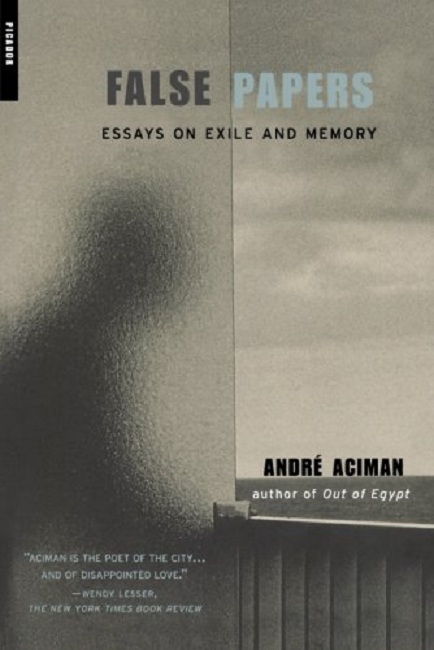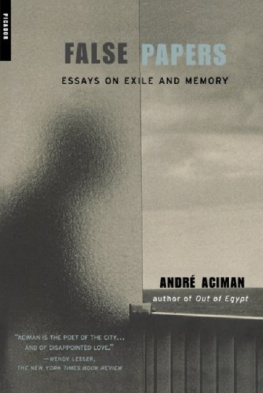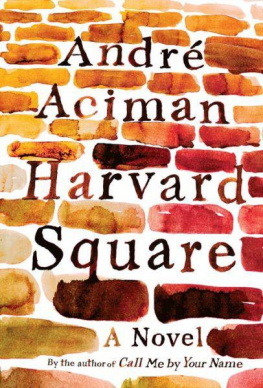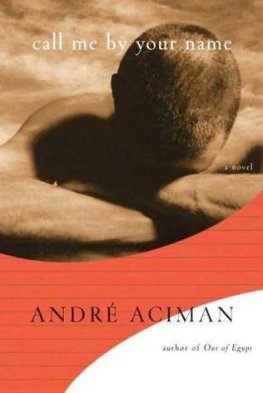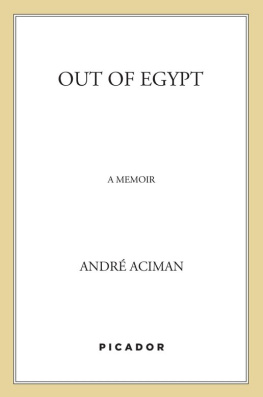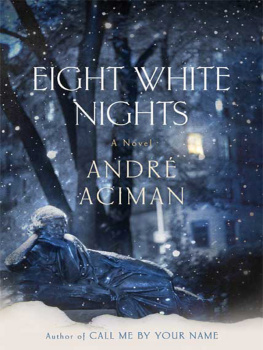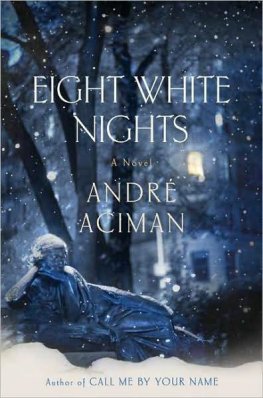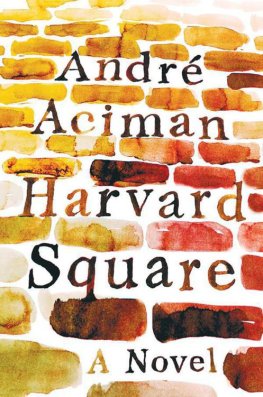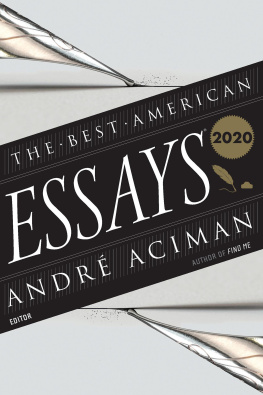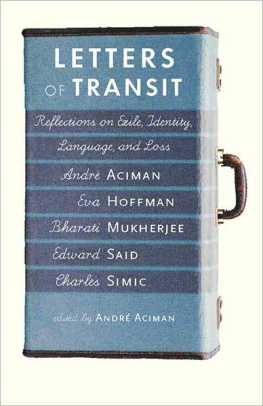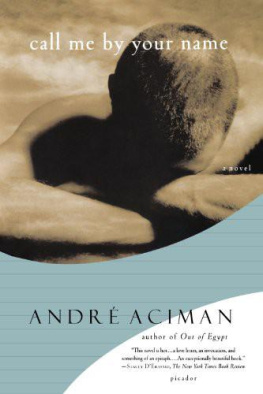T o those who asked, I said I went back to touch and breathe the past again, to walk in shoes I hadnt worn in years. This, after all, was what everyone said when they returned from Alexandriathe walk down Memory Lane, the visit to the old house, the knocking at doors history had sealed off but might pry open again The visit to the old temple, the visit to Uncle So-and-sos house, the old school, the old haunts, the smell of the dirty wooden banister on days you almost glided downstairs on your way to a movie. And then, of course, the tears, the final reckoning, the big themes: the return of the native, the romance of the past, the redemption of time. All of it followed by predictable letdowns: the streets always much narrower than before, buildings grown smaller with time, everything in tatters, the city dirty, in ruins. There are no Europeans left, and the Jews are all gone. Alexandria is Egyptian now.
As I step onto the narrow balcony of my room at the Hotel Cecil and try to take in the endless string of evening lights speckling the eastern bay, I am thinking of Lawrence Durrell and of what hemight have felt standing in this very same hotel more than fifty years ago, surveying a magical, beguiling citythe capital of memory, as he called it, with its five races, five languages and more than five sexes.
That city no longer exists; perhaps it never did. Nor does the Alexandria I knew: the mock-reliquary of bygone splendor and colonial opulence where my grandmother could still walk with an umbrella on sunny days and not realize she looked quite ridiculous, the way everyone in my family must have looked quite ridiculous, being the last European Jews in a city where anti-Western nationalism and anti-Semitism had managed to reduce the Jewish population from at least fifty thousand to twenty-five hundred by 1960 and put us at the very tail end of those whom history shrugs aside when it changes its mind.
The Alexandria I knew, that part-Victorian, half-decayed, vestigial nerve center of the British Empire, exists in memory alone, the way Carthage and Rome and Constantinople exist as vanished cities onlya city where the dominant languages were English and French, though everyone spoke in a medley of many more, because the principal languages were really Greek and Italian, and in my immediate world Ladino (the Spanish of the Jews who fled the Inquisition in the sixteenth century), with broken Arabic holding everything more or less together. The arrogance of the retired banker, the crafty know-it-all airs of the small shopkeeper, the ways of Greeks and of Jews, all of these were not necessarily compatible, but everyone knew who everyone else was, and on Sundaysat the theater, in restaurants, at the beach, or in clubschances were you sat next to each other and had a good chat. My grandmother knew Greek well enough to correct native Greeks, she knew every prayer in Latin, and her written French, when she was vexed, would have made the Duc de Saint-Simon quite nervous.
This is the Alexandria I live with every day, the one Ive taken with me, written about, and ultimately superimposed on other cities, the way other cities were originally sketched over the Alexandrian landscape when European builders came, in the middle of the nineteenth century, and fashioned a new city modeled after those they already loved. It was this Alexandria I came looking forknowing Id never find it. That did not bother me. For I had come not to recover memories, nor even to recognize those Id disfigured, nor to toy with the thought that Id ever live here again; I had come to bury the whole thing, to get it out of my system, to forget, to hate even, the way we learn to hate those who wouldnt have us.
I am, it finally occurs to me, doing the most typical thing a Jew could do. Ive come back to Egypt the way only Jews yearn to go back to places they couldnt wait to flee. The Jewish rite of passage, as Passover never tells us, is also the passage back to Egypt, not just away from it.
Until the mid-1950s, Jews had done extremely well in Egypt. They had risen to prominence and dominated almost every profession, and they were among the major financiers who brokered Egypts passage from a European to a national economy, serving as important conduits for foreign investors. Jews managed a significant share of Egypts stock exchange and owned some of the biggest banks and almost all the department stores; the country boasted the greatest number of Jewish multimillionaires in the Middle East. Jews, though very few in number, held seats in the Egyptian parliament.
These were, for the most part, observant Jews, but in a cosmopolitan city like Alexandria, where overzealous piety was derided and where friendship was almost never based on creed, many of these Jews were quite relaxed when it came to religion, particularlysince most of them, educated in Catholic schools, tended to know more about the religions of others than about their own. Seders, I remember, were rushed affairs; no one wanted to inflict Passover on Christians who happened to be visiting and had been induced to stay for dinner.
Following the Israelis 1948 defeat of the Arabs, anti-Semitism rose sharply in Egypt, and there were some deadly incidents in the wake of the war. Matters became worse after 1956, when Israel joined forces with France and England in a tripartite attack on Egypt after Nasser nationalized the Suez Canal. British and French residents of Alexandria were summarily expelled from Egypt, as were many Jews; everyone had assets, businesses, and properties seized by the state. Aunts and uncles, friends, grandparents, some of whom hadnt been expelled, read the writing on the wall and left within a few years of the 1956 war, abandoning everything they owned. Most settled in Europe, others in America.
Some, like us, simply waited, the way Jews did elsewhere when it was already too late to hope for miracles. We saw the city change and each year watched European shop names come down and be replaced by Egyptian ones, and heard of streets being renamed, untilas is the case nowI didnt know a single one.
The only street whose name hasnt changed is the waterfront road known as the Corniche, al-Corniche, a thick bottleneck mass of tottering loud vehicles emitting overpowering gas fumes.
I try to rest both arms on the balustrade outside my hotel room, as Id envisioned doing on receiving the glossy brochure with the Cecils picture. But the small, Moorish/Venetian-style balcony is entirely taken over by a giant compressor unit; its impossible to maneuver around it. Bird droppings litter the floor.
Two men are speaking in Arabic downstairs. One is telling theother about his very bad foot and his pain at night. The other says it might go away. They dont know how surreal mundane talk can seem to someone whos been away for thirty years.
On the main square facing the hotel stands the ungainly statue of the Egyptian patriot Saad Zaghlul, one leg forward in the manner of ancient Egyptian statues, except that this one wears a fez. I used to pass by here every morning on my way to school by bus.
Beyond Saad Zaghlul is a villa housing the Italian consulate, and farther yet is the citys main tramway station and to its right the Cinema Strand, all unchanged, though worn by age. To my right is Dlices, one of the citys best pastry shops. It hasnt moved either. Nothing, I think, is unfamiliar enough. I havent forgotten enough.
Across the bay sits the fortress of Kait Bey, its ill-lit, brooding halo guarding the Eastern Harbor. The fortress is said to occupy the site of the ancient Pharos lighthouse, one of the Seven Wonders of the Ancient World. Some say that the fort was built with stones taken from the old lighthouse itself. A French archaeological company has been commissioned to dig here. The area is cordoned off and considered top secret.
